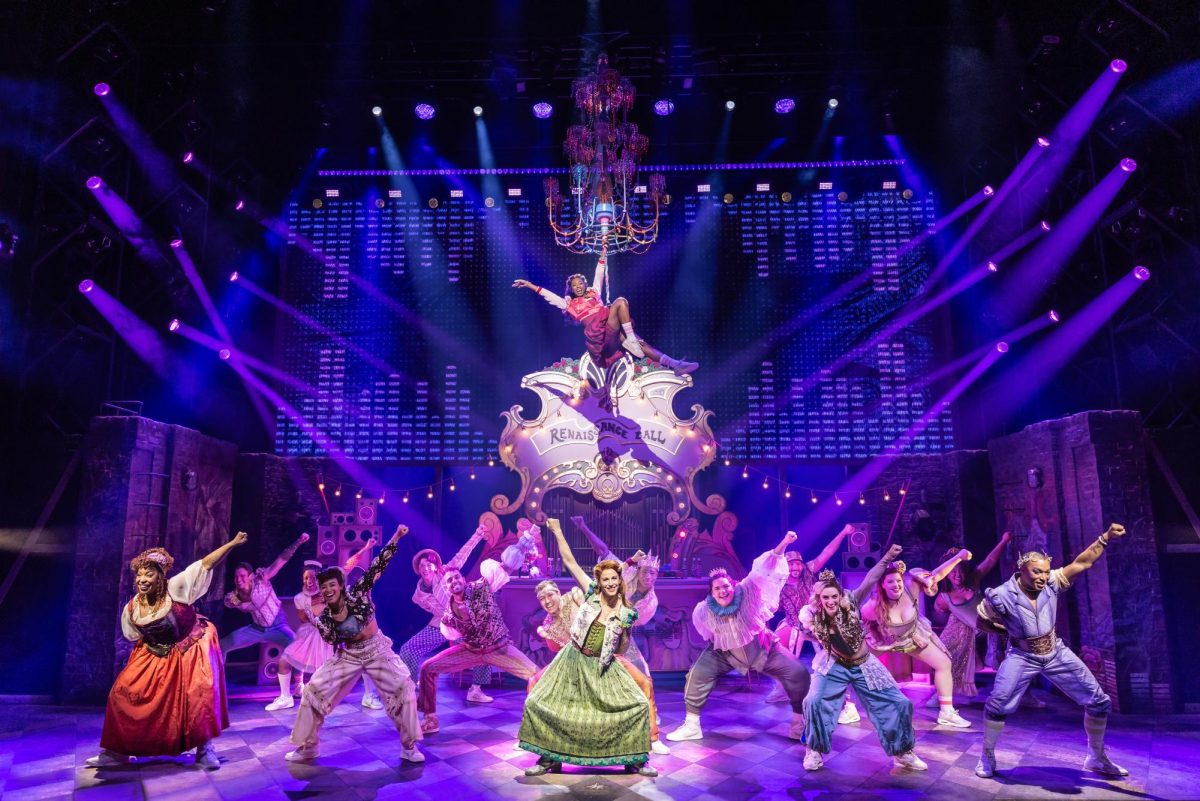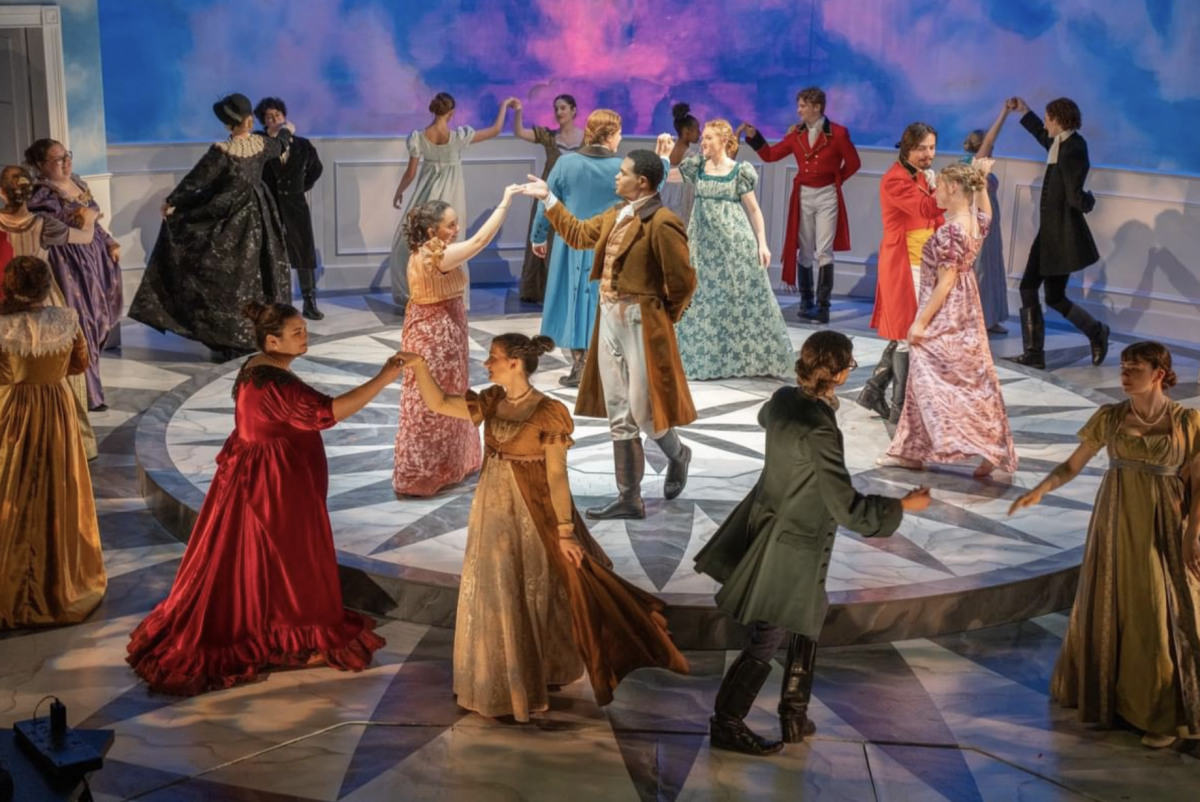Cameron Crowe's "Elizabethtown" is a kind, gentle little movie with an optimistic, smiling soul. I liked this movie: I liked the people it introduced to me and I liked the places it took me. And in the end, it made me feel good about myself. I really don't know how to explain the beauty of "Elizabethtown" any better than that. If you want to see a movie that will make you feel good not only about yourself, but also about the entire human condition, see "Elizabethtown."
I am not exactly sure what I liked it about, though; I think I liked the fact that it exists. Movies like "Elizabethtown" give me hope for the future, not just for Hollywood, but also for humanity. Every year it seems like movies get uglier and more derivative. Love stories, once Hollywood's candy-colored tribute to all things pure, have been infected lately by ignorance and meanness. "Elizabethtown" is a throwback to the days when Hollywood made movies that were, for lack of a better word, nice. This is not to say the movie is bland or ineffectual; rather, it's a hopeful and warm movie, the kind of film you can take your entire family to see, knowing that everybody, from age eight to 80, can identify with its uplifting message.
In a Hollywood system marred by cynicism and cold-fisted capitalism, it is refreshing to see that a man like Cameron Crowe can make films that are unwaveringly bright and sincere. Since making his directing debut with "Say Anything" in 1985, Crowe has established himself as a unique writer and director: an artist who fundamentally believes in the good of his fellow man. In an interview with The Badger Herald, he said as much, saying, "You can't beat real life. The way real people talk is as poetic as the way people you made up talk."
Cameron Crowe may be our last humanist; he is a man who firmly believes the only things you need for salvation are the love of a good woman and a good mix-tape. If you have these two things, everything else will take care of itself. Crowe has used this premise to make three of the best movies of the past 20 years: "Say Anything," "Jerry Maguire" and "Almost Famous." After losing his way in 2001 with "Vanilla Sky," Crowe took four years off before making his return to filmmaking with "Elizabethtown." His exile from Hollywood was definitely time well spent.
Crowe's new movie is about Drew Taylor (Orlando Bloom, "Lord of the Rings"), a hotshot executive at a shoe company in Oregon whose new concept shoe has been recalled, sending his company into financial ruin. On the brink of suicide, he gets a call from his mother, Hollie (Susan Sarandon, "Alfie") and sister, Heather (Judy Greer, "The Village") telling him that his father died while on vacation in his hometown of Elizabethtown, Kentucky. Drew is asked to go retrieve the body from Kentucky since Hollie is not welcome there. We never find out exactly why, but that's one of the pleasures of this movie: Crowe doesn't fill everything in for us.
On the plane to Louisville, he meets a stewardess named Claire (Kirsten Dunst, "Wimbledon"), one of those lovable, witty and beautiful women who can often be found in movies. They engage in a curious and unique kind of flirting, the kind of romantic repartee you go your whole life hoping to experience. They separate but then meet again several times throughout the film. In a lesser movie, they would immediately jump in the sack together, but Crowe is too smart for that. He knows that good conversation is more erotic and alluring than good sex, and he gives Claire and Drew plenty of good conversation, including a showstopping late-night conversation set to Ryan Adams' "Come Pick Me Up."
Besides Claire, Drew must also interact with his father's friends and relatives in Elizabethtown, who are dead-set against burying Drew's father anywhere except the family plot in Kentucky. A lesser director probably would have made the citizens of Elizabethtown typical chicken-fried movie southerners, but Crowe just shows them as good, solid people. He has said the movie was "a tribute to my dad and a love letter to his home state." Crowe certainly succeeds in this respect: the people of Kentucky have got to be pleased that Crowe had the acuity to think that nice people actually live in the south.
Across the board, the performances are brilliant. Bloom, an actor I have never been a fan of, is immediately credible as the disaffected Drew. Casting Bloom may seem a bit strange, considering he's never really played a character from this century, but he manages to strike the perfect balance between detachment and passion: a good, if troubled man, learning how to love. According to Crowe, "Drew is a character who chooses optimism over cynicism." These may not seem like qualifications for a hero, but these days, when cinemas are being taken over by goons like Ryan Reynolds posing as heroes, it's nice to meet a character like Drew. A hero is a person you want to be, a person you want to emulate. By the end of "Elizabethtown", I wanted to be Drew Taylor, the same way I wanted to be Lloyd Dobler, Jerry Maguire, William Miller and the rest of Cameron Crowe's alter-egos.
Dunst is wonderful as well. She manages to do one of the toughest things for an actress: she creates a woman who is achingly mysterious, yet still remains loveable and attainable. Dunst has always been an actress of sincerity and warmth, and her performance here is no exception. Still, there are moments, particularly near the end of the movie, where she hits notes we've never heard from her before. This is her breakout performance.
The supporting cast, which includes Jessica Biel (very good here, by the way), Alec Baldwin, Bruce McGill and Loudon Wainwright, is first-rate. They may not be quite as endearing or memorable as the supporting players in "Almost Famous" or "Jerry Maguire" (remember Dicky Fox?), but they aren't supposed to be — this is the Drew and Claire show.
If you go into "Elizabethtown" hoping to be taken in by the intricacies of a wonderful plot, you are going to be disappointed. Admittedly, the premise of the movie sounds a lot like "Garden State," although Crowe laughed off this point when I raised it, saying, "the biggest similarity between Zach Braff and myself is that we both like The Shins." I agree: Braff's movie is much more melancholy than Crowe's. "Garden State" has a much more downhearted tone than "Elizabethtown" and is driven much more by the constructs of the plot. Crowe's movie is more about observation. Nothing really happens in "Elizabethtown." This is not a bad thing — rather, it is sort of refreshing. Too many movies nowadays feel the need to be "about something." "Elizabethtown" is content merely to exist, drawing us in with a series of transcendent moments and characters that lead up to a low-key, but nonetheless lovely, payoff. Cameron Crowe's movies have never been about plot; he's always been more concerned with the moments that shape our lives.
Oh, and what wonderful moments they are. "Elizabethtown" is filled with moments that make you want to hug yourself. All of these moments are brilliantly scored to the bluesy soundtrack that includes Tom Petty, Ryan Adams, and My Morning Jacket. I'm trying to pick one moment to focus on, but there are just too many. We get Claire explaining to Drew how to properly say Louisville (it's pronounced Loo-ah-ville). We get a scene of Drew falling in love with Claire, set to the tune of Tom Petty's "Learning to Fly."
The movie loses its way a bit at the beginning of the final act. The focus is shifted away from Claire and Drew for the funeral scene, which is a little too long and silly for this movie.
Much has been made of how Paramount forced Cameron Crowe to cut the movie down after a disastrous premiere at the Toronto Film Festival earlier this fall, although Crowe told me he was the one who wanted to cut the movie down so it would run under two hours. I think he may have cut some of the wrong things. Some of Drew and Claire's scenes feel half-finished, which is no doubt a result of cuts. It may have been a better choice to leave their scenes alone and focus on some of the third-act fluff. Susan Sarandon has a particularly painful soliloquy at her husband's funeral that feels totally out of left field and stops the movie in its tracks. Crowe could have lost those five minutes and his movie would have been better off.
These are quibbles, though. The fact remains that "Elizabethtown" is the most enjoyable movie I've seen this year — a film so good, so pure that it's some kind of miracle.
Grade: AB







